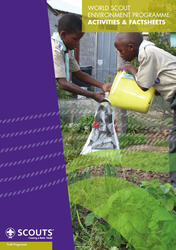
Adults in Scouting: is a systematic programme of adult resources management, to improve the effectiveness, commitment and motivation of the leadership in order to produce better programmes for young people and a more effective and efficient organization.
In 1990 the World Scout Conference agreed an approach for the effective management of Adults in Scouting and in 1993 the World Adult Resources Policy was adopted with the key purpose of supporting Adults in Scouting through a systematic programme of adult resources management.
Since 1993, National Scout Organizations have adopted and implemented (fully or partially) the World Adult Resources Policy, with some encountering cultural and language difficulties. The proposed amendments to the World Adult Resources Policy strengthen the key purpose of the policy, which is to support adults through training, encouragement and ongoing support and to ensure that there are appropriate systems in place to make this happen.
The new version of the World Adult Resources Policy, entitled World Adults in Scouting Policy is integrative, incorporating other relevant
WOSM policies, encouraging a team approach to supporting adults and building on the principles of learning organisations.
The World Adults in Scouting Policy can also be used as a framework to manage professionals in Scouting.

.jpg)





.jpg)

.jpg)
.jpg)
.jpg)
.jpg)



.jpg)
